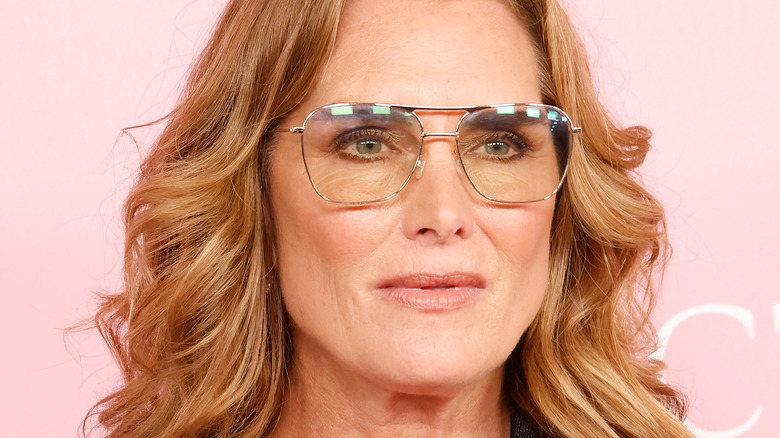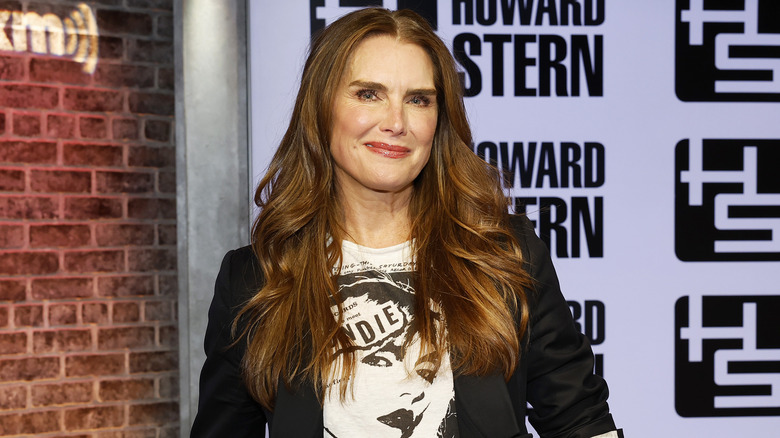Brooke Shields Explains The Scary Reality Of Drinking Too Much Water After Suffering A Seizure
We're constantly warned about the dangers of dehydration, but the risks of overhydration are far less talked about. Having always spoken openly about her health, this was a topic of discussion during a November 1 interview with Glamour in which actress Brooke Shields revealed that she had recently experienced a tonic-clonic seizure, formally referred to as a grand mal seizure, according to the Mayo Clinic.
Shields explained that the seizure occurred after she'd spent the day loading up on water prior to performing her solo show that ran during the month of September in Manhattan. "I was preparing for the show, and I was drinking so much water, and I didn't know I was low in sodium," she told the outlet. As the day went on, the supermodel shared that she began feeling off, which those around her began to pick up on. She described a moment of disorientation where she walked outside and was unable to remember why she was out there in the first place. Upon returning inside, Shields explained that her vision began to go black before she collapsed.
Shields was dangerously low on sodium
Shields described the severity of symptoms she experienced during the seizure, including frothing at the mouth, skin turning blue, and attempting to swallow her tongue. "The next thing I remember, [I'm] being loaded into an ambulance. I have oxygen on," she tells Glamour, adding that actor Bradley Cooper rode alongside her in the ambulance on the way to Mount Sinai, where she was placed in the ICU. The doctor told Shields that she had depleted her sodium levels by flushing her body with excess water. This can throw off one's electrolyte balance and prompt swelling of the cells, explains Medical News Today. The lack of sodium in Shields' system had led her to have a seizure. The actress has never disclosed any history of epilepsy (via AARP).
Overhydration doesn't usually happen on purpose. Having been hard at work on her show and podcast, the actress stated that she continued to drink water because she had been feeling dehydrated. Therefore, it's important for people to know the warning signs of overhydration, which can potentially lead to water intoxication. Headaches, vomiting, and nausea may be among the initial symptoms to emerge. In cases of severe water intoxication, a person may experience double vision, drowsiness, muscle cramping, confusion, and more. It is suggested that individuals consume no more than 0.8 to 1.0 liters of water per hour.


